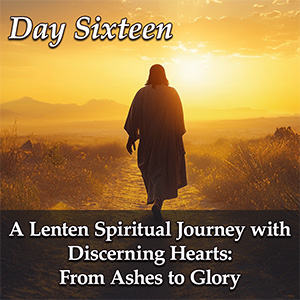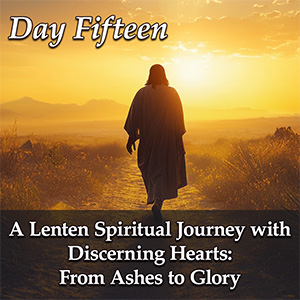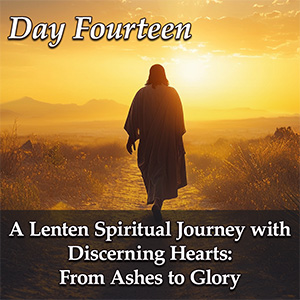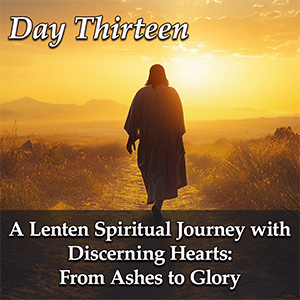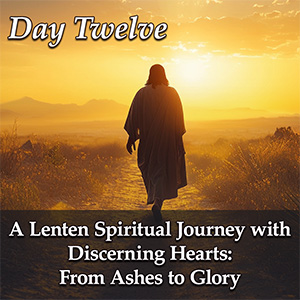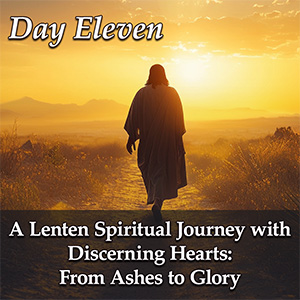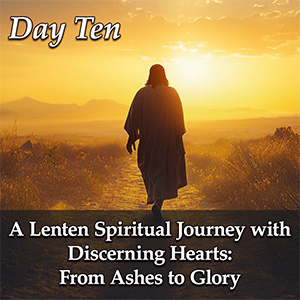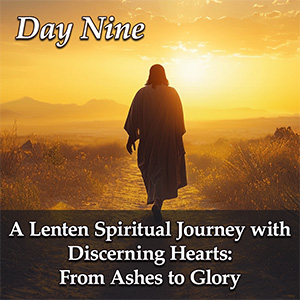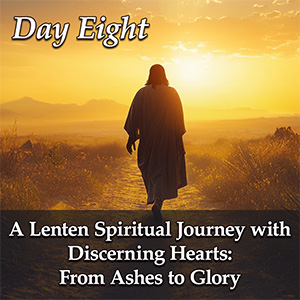Podcast: Play in new window | Download (Duration: 4:15 — 3.0MB) | Embed
Subscribe: Apple Podcasts | Spotify | Amazon Music | Android | Pandora | iHeartRadio | JioSaavn | Podchaser | Gaana | Podcast Index | Email | TuneIn | Deezer | Anghami | RSS | More
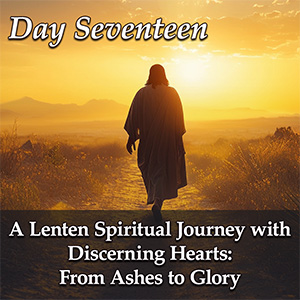
A Lenten Spiritual Journey with Discerning Hearts: From Ashes to Glory – Discerning Hearts Podcast
Day 17: “God’s Steadfast Love and Forgiveness”
Scripture Reading (Jerusalem Bible):
Micah 7:18-19
“Who is a God like you, pardoning iniquity and passing over the transgression of the remnant of your possession? He does not retain his anger forever because he delights in showing steadfast love. He will again have compassion upon us; he will tread our iniquities underfoot. You will cast all our sins into the depths of the sea.”
Reflection:
Today’s scripture draws us into the heart of God’s steadfast love and mercy. “He does not retain His anger forever because He delights in showing steadfast love.” These words from the prophet Micah remind us of the boundless mercy of God, who longs not to condemn but to forgive, to heal, and to restore.
God’s forgiveness is not something we earn; it is a gift freely given. Yet, this gift calls for a response from us—a willingness to turn back to Him with contrite hearts. Lent is a time to embrace this call to repentance and to trust in God’s promise to “cast all our sins into the depths of the sea.” No matter how far we may feel from Him, His mercy is always greater.
The Desert Fathers knew that the path to forgiveness often began with humility and the courage to face one’s own weaknesses. Abba Moses the Black said:
“The one who knows his sins is greater than the one who raises the dead.” (Apophthegmata Patrum, Alphabetical Collection, Moses 11)
Similarly, St. Faustina Kowalska, the Apostle of Divine Mercy, reminds us:
“The greater the sinner, the greater the right they have to My mercy.” (Diary of St. Faustina, 723)
God’s mercy is not limited by our failures. It is infinite, waiting to embrace us when we turn to Him in trust. As we reflect today, let us ask: How can we open our hearts more fully to God’s forgiveness? And how can we extend that same mercy to others, reflecting the love we ourselves have received?
Reflection Questions:
- How does God’s steadfast love and forgiveness inspire us to return to Him with trust?
- What areas of our lives are in need of healing and repentance?
- How can we reflect God’s mercy in our relationships with others, especially those who have hurt us?
Closing Prayer:
Lord, You are rich in mercy and delight in showing steadfast love. Teach us to trust in Your forgiveness and to turn back to You with humble hearts. Cast away our sins and fill us with Your healing grace. May Your mercy transform our lives so that we may reflect Your love and compassion to the world. Amen.
This reflection is written by Kris McGregor of Discerning Hearts®. The Scripture passage is taken from the Jerusalem Bible (1966 edition), used with permission. No unauthorized use or reproduction is permitted without prior written consent.

